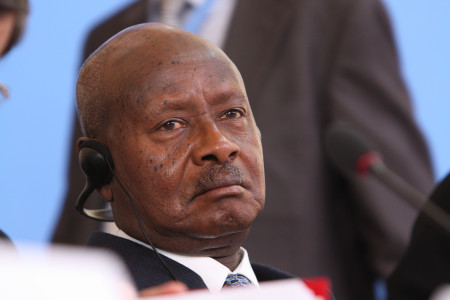
Police in Uganda have purchased extra anti-riot gear ahead of next week’s General Election in a move critics claim is designed to intimidate opponents of long-time president Yoweri Museveni.
Museveni’s two major rivals, Kizza Besigye and Amama Mbabazi, a former prime minister and secretary general of the ruling party, have both attracted large crowds and analysts say Museveni faces his toughest challenge yet in his bid to extend his 30-year tenure.
Critics have accused him of using violence by security personnel to intimidate opposition supporters, while police have drawn public ire for frequently blocking opposition gatherings or using teargas and sometimes live ammunition to disperse them.
Police spokeswoman Polly Namaye said they had bought a consignment of equipment to help them bolster security during voting.
“In the process of ensuring that we secure the election … we have had to purchase equipment that we believe will help us in transportation, in crowd control and public order management,” Namaye said without giving specific details of the equipment that had been bought.
In recent days, pictures of water cannon trucks and armoured trucks parked at Kenya’s Mombasa seaport and with “Uganda Police” emblazoned on them have circulated on social media.
Cissy Kagaba, executive director of anti-corruption coalition Uganda (ACCU), said the timing of the purchase was “suspicious.”
“[The anti-riot gear] will have an intimidating effect. … It’s going to be difficult to convince us that these things have been bought for legitimate security concerns,” she said.
Last month, police chief Kale Kayihura provoked public outrage after he was quoted in a local newspaper telling a civilian anti-crime force to prepare for “war” after the coming election.
Uganda most recent nationwide protests took place shortly after the last election in 2011 when people took to the streets to demonstrate against high consumer prices, corruption and Museveni’s long rule.









